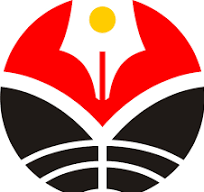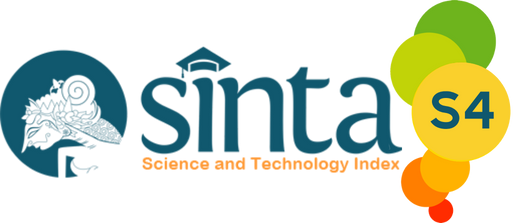PENERAPAN MODEL PEMBELAJARAN PROJECT BASED LEARNING (PBL) PADA MATA PELAJARAN PEMROGRAMAN DESKTOP UNTUK MENINGKATKAN HASIL BELAJAR PESERTA DIDIK KELAS XI RPL B SMK NEGERI 2 KARANGANYAR
Abstract
The objective of research was to find out (1) the improvement of learning outcome in the 11th RPL B graders of SMK Negeri 2 Karanganyar by applying Project Based Learning model to Desktop Programming Subject, and (2) the improvement of activeness in the 11th RPL B graders of SMK Negeri 2 Karanganyar by applying Project Based Learning model to Desktop Programming Subject. This study was a Classroom Action Research (CAR) conducted in two cycles. Each cycle consisted of four stages: planning, acting, observing, and reflecting. The subject of research was the 11th RPL B graders of SMK Negeri 2 Karanganyar in the school year of 2015/2016, consisting of 38 students: 28 boys and 6 girls. Techniques of collecting data used were documentation, observation, test, and interview. Data validation was conducted using triangulation and data analysis was carried out using a statistic descriptive comparative. The result of research showed that the application of Project Based Learning (PBL) learning model in desktop programming subject could improve the learning outcome of students. The result of research indicated the increasing proportion of students passing successfully of 33.33% in pre-cycle, 40.00% in cycle I, and 96.97% in cycle II for cognitive domain; of 3,03% in pre-cycle, 56,25% in cycle I, and 84,85% in cycle II for affective domain; of 0.00% in pre-cycle, 40,63% in cycle I, and 81,82% in cycle II for psychomotor domain; and of 6.06% in pre-cycle, 50.00% in cycle I, and 93.94% in cycle II for activeness aspect. The result of interview with students showed that the application of Project Based Learning model was joyful and made the students participating more actively in learning process. The conclusion of research was that the application of project based learning (PBL) learning model in desktop programming subject could improve the learning outcome of the 11th RPL B graders of SMK Negeri 2 Karanganyar in the school year of 2015/2016.
Keywords
Full Text:
PDF (Bahasa Indonesia)References
Badan Pengembangan Sumber Daya Manusia Pendidikan dan Kebudayaan dan Penjaminan Mutu Pendidikan. (2013). Model Pembelajaran Berbasis Proyek (Project Based Learning). Jakarta: Kementerian Pendidikan dan Kebudayaan RI.
Bell, S. (2010). Project Based Learning for the 21st Century: Skills for the Future. The Clearing House, 83(2), 39-43. Diperoleh pada 11 Oktober 2015.
Larmer, J., Mergendoller, J., & Boss, S. (2015). Setting the Standard for Project Based Learning: A Proven Approach to Rigorous Classroom Instruction. California: Buck Institute for Education.
Patton, A. (2012). Work that matters : The Teacher’s Guide to Project Based Learning. London: Paul Hamlyn Foundation.
Purwanto. (2013). Evaluasi Hasil Belajar. Yogyakarta: Pustaka Pelajar.
_______. (2014). Evaluasi Hasil Belajar. Yogyakarta: Pustaka Pelajar.
Rosenfeld, S. & Ben-Hur, Y. (2001). Project Based Learning (PBL) in Science and Technology : A Case Study of Professional Development. Proceedings of the IOSTE Symposium in Southern Europe , hlm. 32, Paralimni, Cyprus.
Sardiman. (2009). Interaksi & Motivasi Belajar Mengajar. Jakarta: PT Rajawali Pers.
Sudjana, N. (2005). Penilaian Hasil Proses Belajar Mengajar. Bandung: PT Remaja Rosdakarya.
Suprihatiningrum, J. (2013). Strategi Pembelajaran : Teori & Aplikasi. Yogyakarta: Ar-Ruzz Media.
Susanti, A. D., Basori, B., & Efendi, A. The Implementation of Online Project-Based Learning Model With A Combination of Collaborative Learning to Improve The Learning Result of Digital Photo Composition. Journal of Informatics and Vocational Education, 1(1).
Thomas J.W. (2000). A Review of Research on Project Based Learning. California: The Autodesk Foundation.
Refbacks
- There are currently no refbacks.








